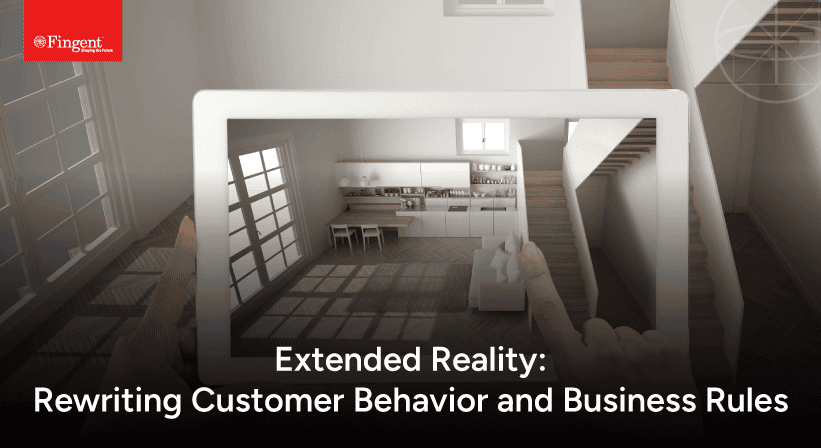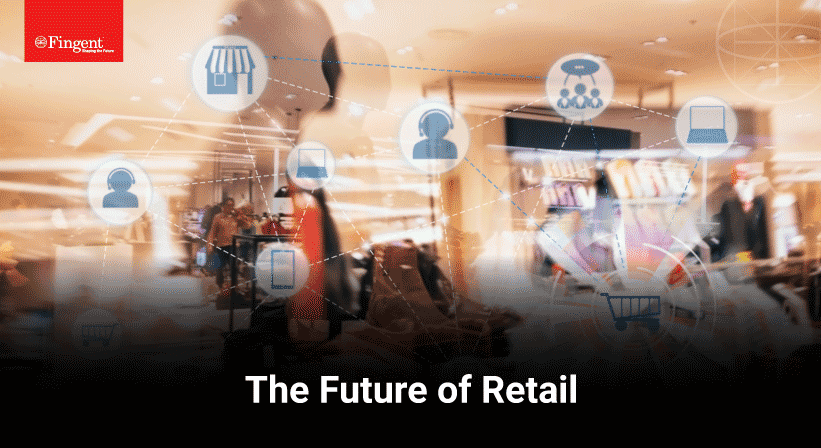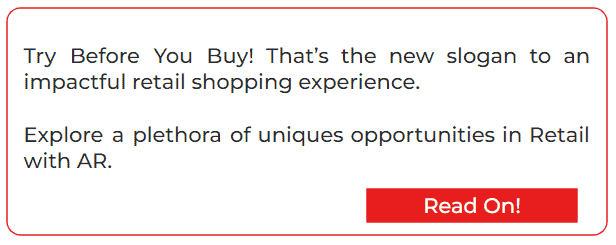Explore Innovative Business Possibilities with Smart Retail Technologies
Our digital era is a whirlwind of change, with technology driving transformation at breakneck speed. It’s not just about adopting new gadgets; it’s about recognizing technology’s influence on consumer interactions. Retailers are at a crossroads with fresh opportunities and challenges. However, there’s a bright side – smart retail technologies can enhance the consumer experience, adapting to modern shoppers’ evolving needs and expectations.
In this article, we’ll explore how technology is transforming the retail sector and how businesses can use these innovations to meet the ever-changing demands of modern consumers. Ready to elevate your retail game? Let’s dive in!
Revamping Retail: How Smart Technologies Elevate the Shopping Experience
To remain competitive, retailers are adopting smart retail displays. These technologies are rapidly growing, with a market value of USD 30.25 billion in 2022 and a projected CAGR of 29.1% from 2023 to 2030. The convergence of innovation and retail has given birth to a shopping experience like never before. The retail industry is undergoing a transformation that promises to delight and engage customers. Let us understand how they are making retail smarter and more efficient.
1. Augmented Shopping
Gartner’s 2020 prediction of 100 million AR users was spot-on, and during the same year, the conversion rate for AR users surged by an impressive 90%.
Augmented reality (AR) is no longer limited to entertainment. It’s transforming the way customers interact with your products. By overlaying digital information onto the physical world, AR allows customers to visualize products in their real-life settings. Imagine someone shopping for furniture, using their smartphone to see how that new couch would fit in their living room. It’s a powerful tool for enhancing decision-making and customer engagement.
Did you know? As per research conducted by Deloitte, utilizing virtual try-ons and Augmented Reality (AR) in shopping experiences results in a remarkable 94% increase in conversion rates.
2. Virtual Trial Rooms
The VR retail market is expected to see substantial growth, increasing from USD 3.18 billion in 2023 to USD 18.99 billion by 2032, with a remarkable compound annual growth rate (CAGR) of 25.00% over the forecast period.
One of the most thrilling advancements in VR and AR in retail is the emergence of virtual fitting rooms. For clothing retailers, virtual trial rooms are a godsend. These digital fitting rooms allow customers to try on clothing virtually, eliminating the need for physical changing rooms. Shoppers can see how garments look and fit without the hassle of undressing. This technology saves time and enhances the overall shopping experience.
3. 3D Web Configurations
Instead of static product images, customers can interact with 3D representations of your products. This technology bridges the gap between online and in-store experiences, making online shopping feel more tactile and immersive. A recent study revealed that 93% of Gen Z have shown keen interest in using AR and 3D configurators for their shopping experiences.
In today’s digital age, attracting customers to your physical store can be challenging. Here, 3D experiences play a crucial role. These immersive technologies enable customers to explore your products thoroughly without visiting the store, helping them make informed decisions. This not only boosts conversion rates but also enhances in-store interactions with your staff, who can better understand customer needs.
4. Staff and Cashier-Free Stores
Staff and cashier-free stores are becoming increasingly popular, thanks to technologies like RFID, computer vision, and automation. Retailers are now investing largely in automated checkout processes. This innovation not only eliminates the need for traditional checkout lines but also enhances security and reduces theft.
Shoppers can grab what they need and simply walk out of the store, with their accounts being charged automatically. This convenience and time-saving aspect of cashier-free stores greatly enhances the overall shopping experience.
5. Data Science-Based Personalization
Data science and artificial intelligence are at the heart of personalization in the retail industry. Retailers collect and analyze vast amounts of customer data to tailor shopping experiences. Machine learning algorithms analyze a customer’s browsing and purchasing history to provide personalized product recommendations, exclusive discounts, and content. This increases sales and makes customers feel valued and understood.
6. Machine Learning for Demand Forecasting
Machine learning is transforming the way retailers manage their inventory and predict customer demand. Traditional methods of demand forecasting often led to overstocking or understocking issues. Machine learning algorithms, however, can analyze real-time data and make more accurate predictions based on various factors like seasonality, customer behavior, and market trends.
This technology ensures that stores have the right products in the right quantities at the right time, reducing waste and ensuring that customers can find what they want when they visit the store. Accurate demand forecasting greatly enhances the shopping experience and minimizes disappointment.
7. Frictionless POS Systems
Frictionless Point of Sale (POS) systems streamline the checkout process. Contactless payments, mobile wallets, and self-checkout kiosks make payments faster and more convenient for customers. With the ability to complete transactions quickly and without hassle, shoppers can spend less time waiting in line and more time enjoying their shopping experience.
Frictionless POS systems also provide a more secure and hygienic way to make payments, which has become increasingly important in the wake of the COVID-19 pandemic. In a survey of U.S. consumers, tap-to-pay mobile apps emerged as the top retail tech, with 66% giving it a positive rating for improving their shopping experience.
Watch now: How smart malls of the future would look like!
Transforming Retail Experiences: Fingent’s Expertise in Technology Solutions
At Fingent, we take pride in our role as a technology consulting and solutions provider, helping retailers navigate the modern landscape to discover unique opportunities and implement them swiftly with cutting-edge technology.
We believe in staying at the forefront of technological innovation, using data-driven insights to empower you to optimize operations, elevate customer experiences, and respond agilely to market changes. We employ agile development methodologies and support you through change management, ensuring that technology adoption is not just efficient but also seamless. We understand the importance of scalability, compliance, and security and work diligently to safeguard your interests.
By partnering with Fingent, retailers can confidently stay competitive, foster growth, and ensure long-term viability through innovative technology adoption. We are here to help you uncover the endless possibilities in the dynamic world of retail. Connect with our experts today!
Stay up to date on what's new

Recommended Posts

20 Mar 2024 B2B
How Is Extended Reality (XR) Impacting Customer Behavior
Extended Reality (XR) is not a technological marvel. It's a force that is reshaping how we interact with the world. This blog will help you discover how XR catalyzes the……

17 Mar 2023 Retail B2B
The Future of Retail: Key Technologies for Success
Over the years, digital evolution has transformed the way we shop! The lockdowns and store closures due to the unprecedented events of 2020 has moreover accelerated this evolution and mainstreamed……

24 Oct 2022 B2B
Providing Seamless Customer Experience with Technology
Customer Experience – Two words that could make or break your business. Today, customers expect businesses to provide nothing short of an excellent customer experience whenever and however they shop.……

03 Mar 2022 Education
The Rapidly Evolving College Admission and Learning Experiences!
Educational institutions were among the most impacted aspects of society when the coronavirus unleashed its hold on the world. Over the course of 18 months schools, colleges, and universities all……
Featured Blogs
Stay up to date on
what's new
















 US
US Insurance
Insurance









































